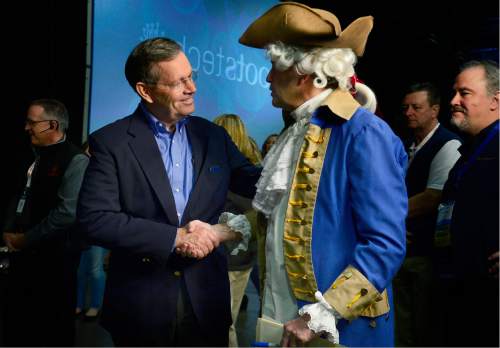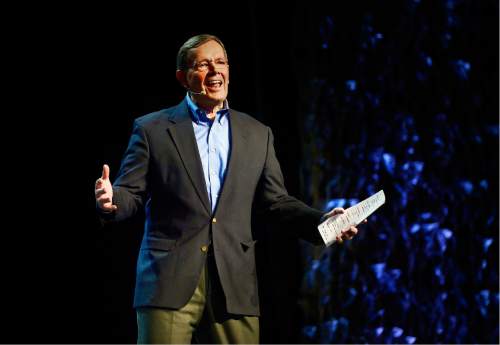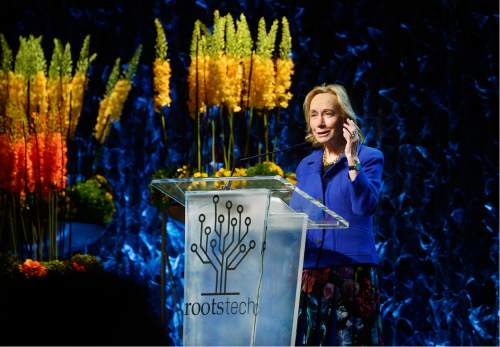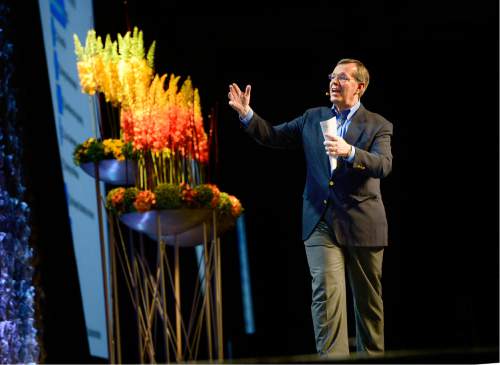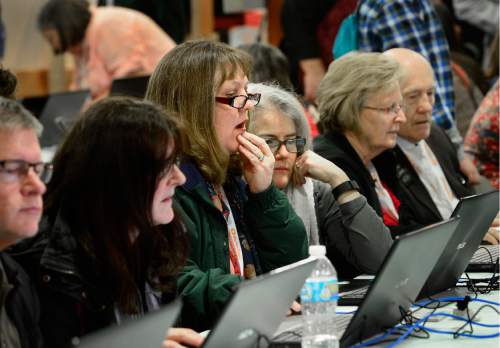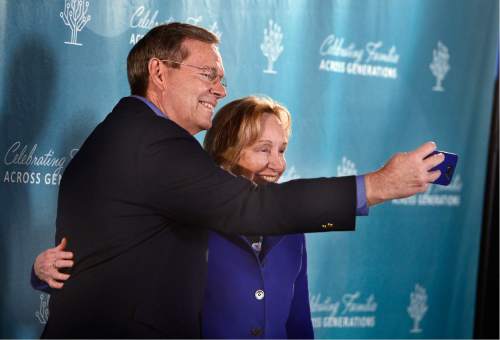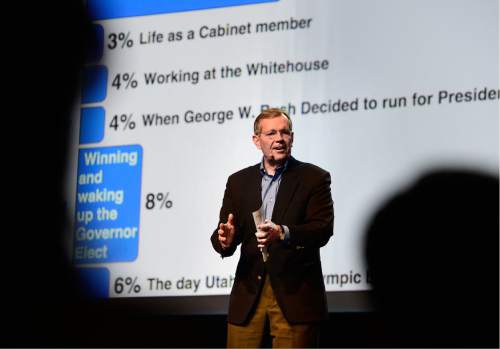This is an archived article that was published on sltrib.com in 2016, and information in the article may be outdated. It is provided only for personal research purposes and may not be reprinted.
Doris Kearns Goodwin said Saturday that for as long as she can remember, she has loved telling stories.
The Pulitzer Prize-winning historian and biographer, who has written about Lyndon Johnson, John F. Kennedy, Franklin Roosevelt and Abraham Lincoln, said it's an odd profession to spend your days and nights with dead presidents, but one she wouldn't change for anything in the world.
That's because the past isn't truly past, she said, but continues with each new generation.
"These people were alive, just as we are," she said. "They had conflicts, they had fights, they were excited by things, they gave birth and they died. It's the drama of human life, it's just being played out on a different stage at a different time."
Uncovering and documenting those lives, she said, is at the root of family history and genealogical work.
As individuals trace their lineage across continents and overseas, Goodwin said, they discover the same stories of hope and fear in their own ancestry that historians like herself reveal about the titans of human history.
"The connection is absolutely direct," she said. "They're becoming mini-historians for their own family through the same process of digging into the past."
Goodwin was the featured speaker during the closing session of RootsTech, an annual genealogy conference held in Salt Lake City.
The four-day conference drew 13,000 registered participants, according to conference spokesman Paul Nauta, as well as an additional 22,000 who registered to participate in Saturday's Family Discover Day, a free event for members of The Church of Jesus Christ of Latter-day Saints.
"It just grows every year," Nauta said.
Goodwin said she knew very little about her own family history as a child.
Her grandparents died before she was born, as did an uncle on her mother's side, and her mother and father both died at relatively young ages.
But in 2014, Goodwin was presented with a lifetime achievement award by the New England Historic Genealogical Society.
The honor included a presentation of Goodwin's own history, revealing a family connection to 15 U.S. presidents, as well as individuals who were both accusers and accused during the Salem witch trials.
"Ancestry research allows us to see those moments in our ancestors' lives when they, too, struggled and came through," she said, "giving us hope for ourselves."
Before Goodwin's remarks, RootsTech guests heard from former Utah Gov. Mike Leavitt, who shared memories of serving as a member of George W. Bush's presidential Cabinet, working with Mitt Romney's presidential campaign and bringing the Winter Olympics to Salt Lake City.
"It was one of those moments when everyone's heart beat together at the same time for the same reason," Leavitt said of the day Utah was chosen to host the 2002 Olympic Games.
He also paid tribute to former Utah Gov. Olene Walker, who served as Leavitt's lieutenant governor and who died in December.
Leavitt said one of his favorite memories from his time in office was asking Walker to stay behind after a meeting. He told her he had been asked to head up the Environmental Protection Agency, and that she would soon become Utah's first female governor.
"Olene just took a deep breath and said, 'I'll be ready,' " Leavitt said. "And indeed, I knew she would be."
Leavitt ended his remarks by returning to memories of the 2002 Winter Olympics.
He said he was impressed by the thousands of people who would line the streets to watch torch runners, carrying "fire on a stick," pass by.
He compared ancestry research to the passing of the torch.
"We're here not for just a conference," Leavitt said. "We're here for what truly is the fire on a stick — and that's family."
Twitter: @bjaminwood


